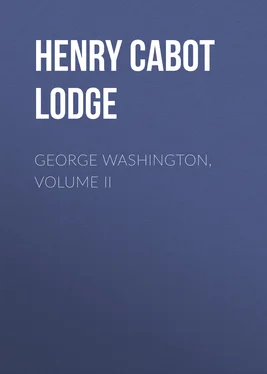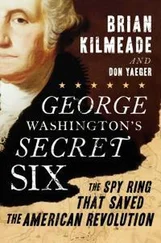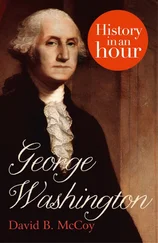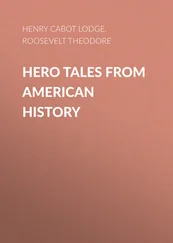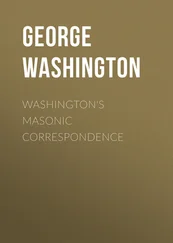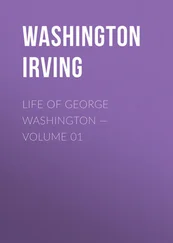Henry Cabot Lodge - George Washington, Volume II
Здесь есть возможность читать онлайн «Henry Cabot Lodge - George Washington, Volume II» — ознакомительный отрывок электронной книги совершенно бесплатно, а после прочтения отрывка купить полную версию. В некоторых случаях можно слушать аудио, скачать через торрент в формате fb2 и присутствует краткое содержание. Жанр: Биографии и Мемуары, История, foreign_edu, foreign_antique, foreign_prose, на английском языке. Описание произведения, (предисловие) а так же отзывы посетителей доступны на портале библиотеки ЛибКат.
- Название:George Washington, Volume II
- Автор:
- Жанр:
- Год:неизвестен
- ISBN:нет данных
- Рейтинг книги:5 / 5. Голосов: 1
-
Избранное:Добавить в избранное
- Отзывы:
-
Ваша оценка:
- 100
- 1
- 2
- 3
- 4
- 5
George Washington, Volume II: краткое содержание, описание и аннотация
Предлагаем к чтению аннотацию, описание, краткое содержание или предисловие (зависит от того, что написал сам автор книги «George Washington, Volume II»). Если вы не нашли необходимую информацию о книге — напишите в комментариях, мы постараемся отыскать её.
George Washington, Volume II — читать онлайн ознакомительный отрывок
Ниже представлен текст книги, разбитый по страницам. Система сохранения места последней прочитанной страницы, позволяет с удобством читать онлайн бесплатно книгу «George Washington, Volume II», без необходимости каждый раз заново искать на чём Вы остановились. Поставьте закладку, и сможете в любой момент перейти на страницу, на которой закончили чтение.
Интервал:
Закладка:
The other members were by no means equally prompt, and a week elapsed before a bare quorum was obtained and the convention enabled to organize. In this interval of waiting there appears to have been some informal discussion among the members present, between those who favored an entirely new Constitution and those who timidly desired only half-way measures. On one of these occasions Washington is reported by Gouverneur Morris, in a eulogy delivered twelve years later, to have said: "It is too probable that no plan we propose will be adopted. Perhaps another dreadful conflict is to be sustained. If, to please the people, we offer what we ourselves disapprove, how can we afterwards defend our work? Let us raise a standard to which the wise and honest can repair. The event is in the hand of God." The language is no doubt that of Morris, speaking from memory and in a highly rhetorical vein, but we may readily believe that the quotation accurately embodied Washington's opinion, and that he took this high ground at the outset, and strove from the beginning to inculcate upon his fellow-members the absolute need of bold and decisive action. The words savor of the orator who quoted them, but the noble and courageous sentiment which they express is thoroughly characteristic of the man to whom they were attributed. 1
When a quorum was finally obtained, Washington was unanimously chosen to preside over the convention; and there he sat during the sessions of four months, silent, patient, except on a single occasion, 2taking no part in debate, but guiding the business, and using all his powers with steady persistence to compass the great end. The debates of that remarkable body have been preserved in outline in the full and careful notes of Madison. Its history has been elaborately written, and the arguments and opinions of its members have been minutely examined and unsparingly criticised. We are still ignorant, and shall always remain ignorant, of just how much was due to Washington for the final completion of the work. His general views and his line of action are clearly to be seen in his letters and in the words attributed to him by Morris. That he labored day and night for success we know, and that his influence with his fellow-members was vast we also know, but the rest we can only conjecture. There came a time when everything was at a standstill, and when it looked as if no agreement could be reached by the men representing so many conflicting interests. Hamilton had made his great speech, and, finding the vote of his State cast against him by his two colleagues on every question, had gone home in a frame of mind which we may easily believe was neither very contented nor very sanguine. Even Franklin, most hopeful and buoyant of men, was nearly ready to despair. Washington himself wrote to Hamilton, on July 10: "When I refer you to the state of the counsels which prevailed at the period you left this city, and add that they are now, if possible, in a worse train than ever, you will find but little ground on which the hope of a good establishment can be formed. In a word, I almost despair of seeing a favorable issue to the proceedings of our convention, and do therefore repent having had any agency in the business." Matters were certainly in a bad state when Washington could write in this strain, and when his passion for success was so cooled that he repented of agency in the business. There was much virtue, however, in that little word "almost." He did not quite despair yet, and, after his fashion, he held on with grim tenacity. We know what the compromises finally were, and how they were brought about, but we can never do exact justice to the iron will which held men together when all compromises seemed impossible, and which even in the darkest hour would not wholly despair. All that can be said is, that without the influence and the labors of Washington the convention of 1787, in all probability, would have failed of success.
At all events it did not fail, and after much tribulation the work was done. On September 17, 1787, a day ever to be memorable, Washington affixed his bold and handsome signature to the Constitution of the United States. Tradition has it that as he stood by the table, pen in hand, he said: "Should the States reject this excellent Constitution, the probability is that opportunity will never be offered to cancel another in peace; the next will be drawn in blood." Whether the tradition is well or ill founded, the sentence has the ring of truth. A great work had been accomplished. If it were cast aside, Washington knew that the sword and not the pen would make the next Constitution, and he regarded that awful alternative with dread. He signed first, and was followed by all the members present, with three notable exceptions. Then the delegates dined together at the city tavern, and took a cordial leave of each other. "After which," the president of the convention wrote in his diary, "I returned to my lodgings, did some business with, and received the papers from, the secretary of the convention, and retired to meditate upon the momentous work which had been executed." It is a simple sentence, but how much it means! The world would be glad to-day to know what the thoughts were which filled Washington's mind as he sat alone in the quiet of that summer afternoon, with the new Constitution lying before him. But he was then as ever silent. He did not go alone to his room to exhibit himself on paper for the admiration of posterity. He went there to meditate for his own guidance on what had been done for the benefit of his country. The city bells had rung a joyful chime when he arrived four months before. Ought they to ring again with a new gladness, or should they toll for the death of bright hopes, now the task was done? Washington was intensely human. In that hour of silent thought his heart must have swelled with a consciousness that he had led his people through a successful Revolution, and now again from the darkness of political confusion and dissolution to the threshold of a new existence. But at the same time he never deceived himself. The new Constitution was but an experiment and an opportunity. Would the States accept it? And if they accepted it, would they abide by it? Was this instrument of government, wrought out so painfully, destined to go to pieces after a few years of trial, or was it to prove strong enough to become the charter of a nation and hold the States together indissolubly against all the shocks of politics and revolution? Washington, with his foresight and strong national instinct, plainly saw these momentous questions, somewhat dim then, although clear to all the world to-day. We can guess how solemnly he thought about them as he meditated alone in his room on that September afternoon. Whatever his reflections, his conclusions were simple. He made up his mind that the only chance for the country lay in the adoption of the new scheme, but he was sober enough in his opinions as to the Constitution itself. He said of it to Lafayette the day after the signing: "It is the result of four months' deliberation. It is now a child of fortune, to be fostered by some and buffeted by others. What will be the general opinion or the reception of it is not for me to decide; nor shall I say anything for or against it. If it be good, I suppose it will work its way; if bad, it will recoil on the framers." We catch sight here of the old theory that his public life was at an end, and now, when this exceptional duty had been performed, that he would retire once more to remote privacy. This fancy, as well as the extremely philosophical mood about the fate of the Constitution, apparent in this letter, soon disappeared. Within a week he wrote to Henry, in whom he probably already suspected the most formidable opponent of the new plan in Virginia: "I wish the Constitution, which is offered, had been more perfect; but I sincerely believe it is the best that could be obtained at this time, and as a constitutional door is opened for amendments hereafter, the adoption of it under the present circumstances of the Union is, in my opinion, desirable." Copies of this letter were sent to Harrison and Nelson, and the correspondence thus started soon increased rapidly. He wrote to Hamilton and Madison to counsel with them as to the prospects of the Constitution, and to Knox to supply him with arguments and urge him to energetic work. By January of the new year the tone of indifference and doubt manifested in the letter to Lafayette had quite gone, and we find him writing to Governor Randolph, in reply to that gentleman's objections: "There are some things in the new form, I will readily acknowledge, which never did, and I am persuaded never will, obtain my cordial approbation, but I did then conceive and do now most firmly believe that in the aggregate it is the best Constitution that can be obtained at this epoch, and that this or a dissolution of the Union awaits our choice, and is the only alternative before us. Thus believing, I had not, nor have I now, any hesitation in deciding on which to lean."
Читать дальшеИнтервал:
Закладка:
Похожие книги на «George Washington, Volume II»
Представляем Вашему вниманию похожие книги на «George Washington, Volume II» списком для выбора. Мы отобрали схожую по названию и смыслу литературу в надежде предоставить читателям больше вариантов отыскать новые, интересные, ещё непрочитанные произведения.
Обсуждение, отзывы о книге «George Washington, Volume II» и просто собственные мнения читателей. Оставьте ваши комментарии, напишите, что Вы думаете о произведении, его смысле или главных героях. Укажите что конкретно понравилось, а что нет, и почему Вы так считаете.
